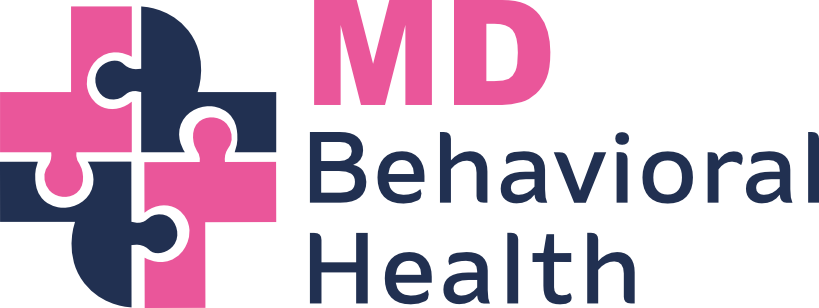As we imagine childhood, we imagine it in terms of laughter, unfettered wonder, and wild days. But for most children, it is also a time of unwritten wars.
Childhood disorders are the silent saboteurs behind behaviors we can all identify with, and children wage their wars without words. Early detection and treatment of these issues are essential to the formation of children’s mental health.
In this blog, we’ll uncover the hidden struggles of childhood mental diseases, explore why they often go unnoticed, and share how families can take proactive steps toward healing.
Understanding Childhood Disorders Beyond Behavior
It is easy enough to brush off tantrums, daydreaming, or mood swings as “growing pains.” But at other times, such behaviors are the tip of the iceberg regarding such concerns as anxiety, ADHD, or depression. Kids don’t yet have the vocabulary to describe how they feel, so their difficulties come out in too-easily misinterpreted ways.
We can avoid being shallow by figuring out if our child requires more than patience—he requires professional assistance.
Some Childhood Disorders You Need to Know About
Although each child is unique, some are more familiar and less understood:
- Anxiety Disorders
Children who are anxious worry excessively, fidget, or report somatic complaints like abdominal problems. Separation anxiety, social anxiety, or generalised anxiety may disrupt daily life.
- ADHD (Attention-Deficit/Hyperactivity Disorder)
Easily misinterpreted as being overly hyperactive, ADHD is characterized by persistent inattention, impulsivity, and overactivity that disrupts learning, relationships, and self-esteem.
- Autism Spectrum Disorder (ASD)
Social interaction, communication, and behavior are impacted by ASD. Its symptoms range widely—from sensory sensitivities to trouble interpreting social cues—often mistakenly attributed to shyness.
- Mood Disorders
Depression or bipolar disease in children can occur as chronic sadness, irritability, or mood swings. The mood swings are much more than the usual ups and downs of childhood.
These diseases show just how far-reaching a child’s life can be affected by childhood illness—and how important it is not to miss them.
Why are Childhood Mental Illnesses So Often Missed?
Although they affect millions of children, these illnesses far too often go undiagnosed. Here’s why:
- Stigma: Parents fear judgment or criticism.
- Gaps in Awareness: Symptoms may appear to be typical child behavior.
- Constricted Resources: Mental health workers are not always available.
- Overloaded Schools: Educators are not always available to find the time or training to provide adequate help.
These obstacles only serve to make it harder for children to obtain the help that they need, once more emphasizing the significance of awareness and early detection.
The Worth of Early Intervention
Early intervention can transform a child’s life totally. Accurate diagnosis and treatment allow youngsters to become skilled at coping mechanisms, develop strength, and excel academically and in social relationships.
Family counseling, play therapy, and cognitive-behavioural therapy (CBT) are some of the therapies that allow children to have healthy channels of expression and effective modes of emotional control.
If the family responds early, the mental health of childhood is a takeoff point for stability over the long term.
How Parents and Caregivers Can Help?
Helping a hurting child starts at home. Here are some steps of action
- Observe and Stay Alert: Watch for mood swings, sleep, hunger or school.
- Educate Yourself: Learn about common childhood mental illnesses and indicators.
- Seek Professional Evaluation: Don’t wait—see a child psychiatrist or therapist if you see persistent struggles.
- Team Up with Schools: Share student plans and accommodations with teachers.
- Take Care of Yourself Too: It’s less stressful to support your child when you, the caregiver or parent, are emotionally strong and well cared for.
These efforts not only enable children to receive the care that they require but also ensure families feel less alone.
Maryland Behavioral Health: Walking with Families Every Step
We believe every child is worthy of success. Our staff provides gentle, full-service care to treat a broad spectrum of childhood illnesses.
Services provided are:
- Specialized Assessment: Personalized testing that finds the root cause of behavioral and emotional difficulty.
- Evidence-Based Therapy: Such as play therapy, CBT, and family therapy.
- Telepsychiatry Services: More convenient professional attention to families.
- Helping Schools and Families: Counseling to create supportive home and classroom environments.
With the help they need, children can learn to be stronger than their difficulties, be proud, and have the healthy, happy childhood they deserve.
Final Thoughts
The underlying struggles with childhood disorders affect far more children than most know. Through education, decreasing stigma, and early intervention, we can alter the trajectory for hundreds of thousands of families.
If your child is experiencing signs of behavioral or emotional difficulties, you can be sure that help is available for you—and you don’t have to navigate it alone.
At Maryland Behavioral Health, we are committed to assisting you and your family in finding your way to hope, healing, and a brighter tomorrow.
